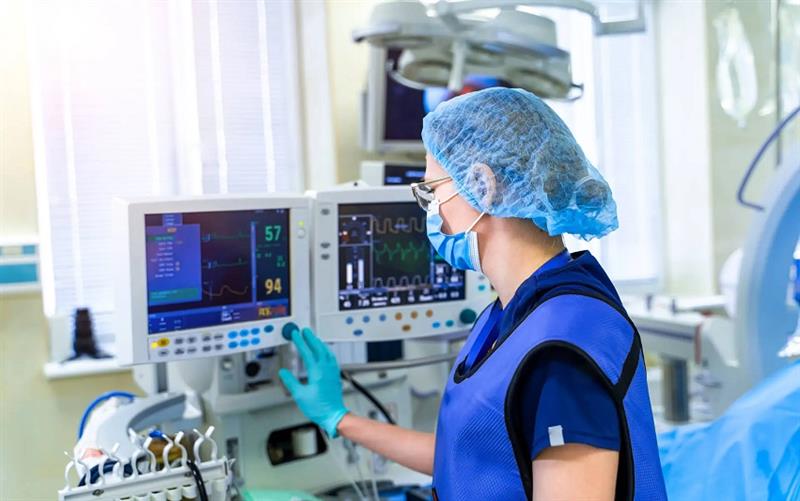
The integration of software in healthcare is not just a trend but a fundamental shift that enhances every aspect of the industry. From improving patient outcomes and streamlining administrative tasks to advancing research and ensuring data security, software is at the heart of modern healthcare innovations. As technology continues to evolve, we can expect even more groundbreaking developments that will further revolutionize the way healthcare is delivered and experienced.
In recent years, the healthcare industry has undergone a dramatic transformation, heavily influenced by advancements in software technology. This shift has not only revolutionized patient care but also streamlined administrative processes, enhanced research capabilities, and improved the overall efficiency of healthcare systems. Here’s why software has become indispensable in modern healthcare:
1. Enhancing Patient Care and Outcomes
Personalized Medicine: Software enables the analysis of vast amounts of patient data, leading to more personalized treatment plans. Machine learning algorithms can predict patient responses to various treatments, helping doctors tailor interventions specifically to each individual.
Telemedicine: The advent of telemedicine, driven by sophisticated software platforms, has made healthcare more accessible. Patients can now consult with healthcare providers remotely, reducing the need for travel and minimizing the risk of exposure to infectious diseases.
Electronic Health Records (EHRs): EHR systems consolidate patient information in a centralized, easily accessible format. This ensures that healthcare providers have comprehensive and up-to-date information, which is critical for accurate diagnosis and effective treatment planning.
2. Streamlining Administrative Processes
Automation of Routine Tasks: Software applications automate repetitive administrative tasks such as scheduling, billing, and insurance claims processing. This reduces the administrative burden on healthcare staff, allowing them to focus more on patient care.
Improved Data Management: Advanced software solutions manage large volumes of data efficiently. This includes patient records, inventory management, and compliance documentation. Efficient data management is essential for maintaining accurate records and ensuring regulatory compliance.
3. Advancing Medical Research
Big Data Analytics: Software tools analyze vast datasets to identify trends, correlations, and patterns that would be impossible to detect manually. This accelerates research in areas such as genomics, epidemiology, and drug development.
Clinical Trials Management: Software solutions streamline the design, implementation, and monitoring of clinical trials. They help in patient recruitment, data collection, and analysis, ultimately speeding up the process of bringing new treatments to market.
4. Enhancing Collaboration and Communication
Interoperability: Modern software solutions promote interoperability, allowing different healthcare systems to communicate and share information seamlessly. This is crucial for coordinating care among various providers and ensuring that patients receive comprehensive, well-informed treatment.
Collaborative Platforms: Software platforms facilitate collaboration among healthcare professionals, researchers, and institutions. This is especially important in multidisciplinary fields where coordinated efforts are necessary to address complex health issues.
5. Empowering Patients
Health Monitoring Apps: Mobile applications empower patients to monitor their health conditions, track medications, and maintain healthy lifestyles. These apps provide valuable data that can be shared with healthcare providers to enhance the quality of care.
Patient Portals: Secure online portals give patients access to their medical records, lab results, and treatment plans. This transparency fosters patient engagement and empowers individuals to take an active role in managing their health.
6. Ensuring Data Security and Privacy
Advanced Security Measures: With the rise in cyber threats, healthcare organizations rely on robust software solutions to protect sensitive patient information. Encryption, access controls, and audit trails are some of the security features that ensure data privacy and integrity.
Compliance with Regulations: Software systems help healthcare organizations comply with stringent regulations such as HIPAA (Health Insurance Portability and Accountability Act). These systems ensure that patient data is handled according to legal standards, avoiding costly penalties and breaches of trust.
7. Enhancing Diagnostic Accuracy
AI and Machine Learning: Artificial intelligence (AI) and machine learning algorithms can analyze medical images, such as X-rays, MRIs, and CT scans, with high accuracy. These technologies assist radiologists and pathologists in detecting abnormalities that might be missed by the human eye, leading to earlier and more accurate diagnoses.
Decision Support Systems: Clinical decision support systems (CDSS) provide healthcare professionals with evidence-based guidelines and recommendations at the point of care. This helps in making informed decisions, reducing diagnostic errors, and improving patient outcomes.
8. Improving Operational Efficiency
Resource Management: Software solutions for hospital and clinic management optimize the use of resources such as staff, equipment, and facilities. This ensures that resources are allocated efficiently, reducing wait times and improving the patient experience.
Supply Chain Management: Advanced software helps manage the supply chain, ensuring that medical supplies and medications are available when needed. This minimizes the risk of shortages and helps maintain continuous patient care.